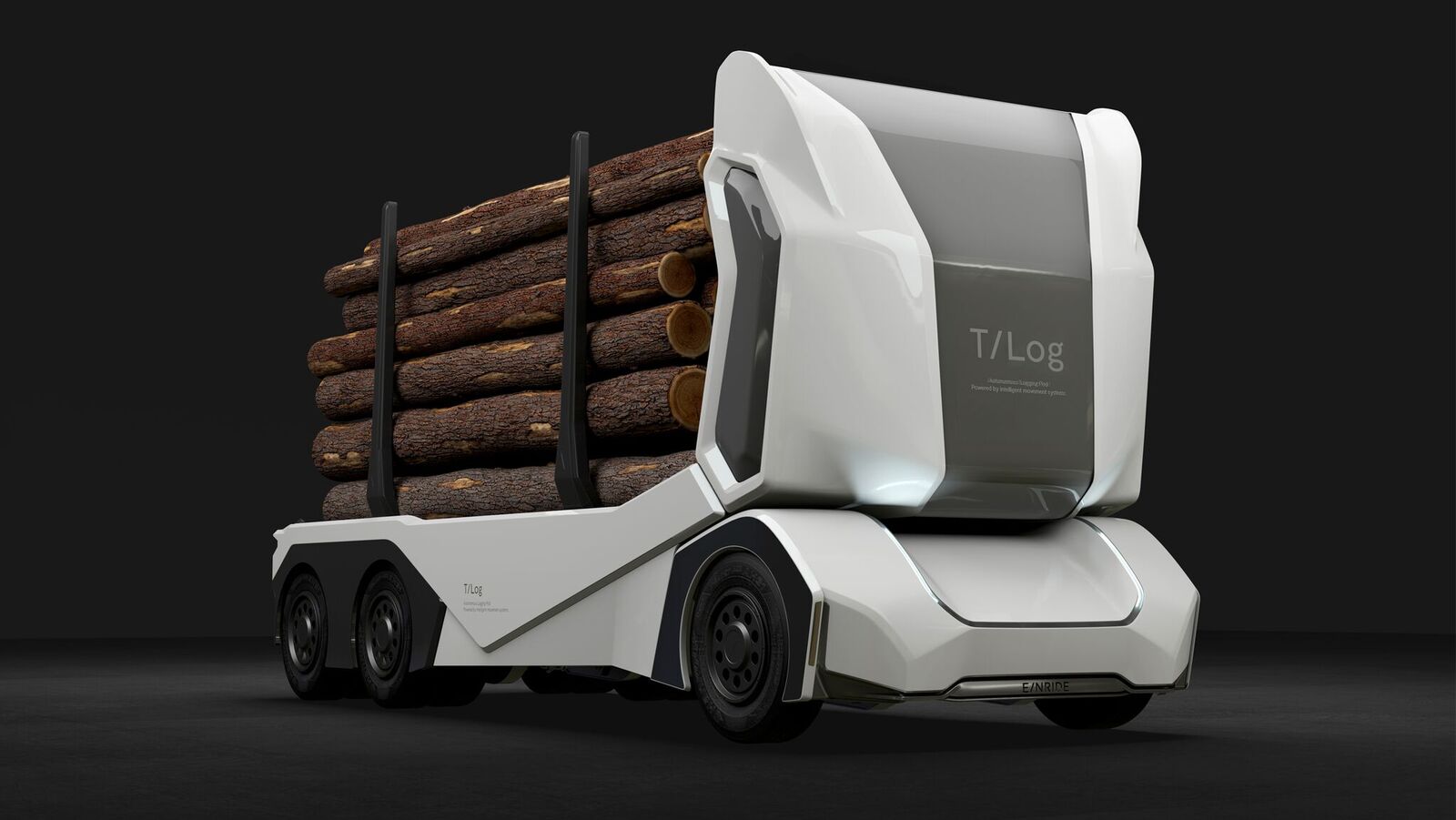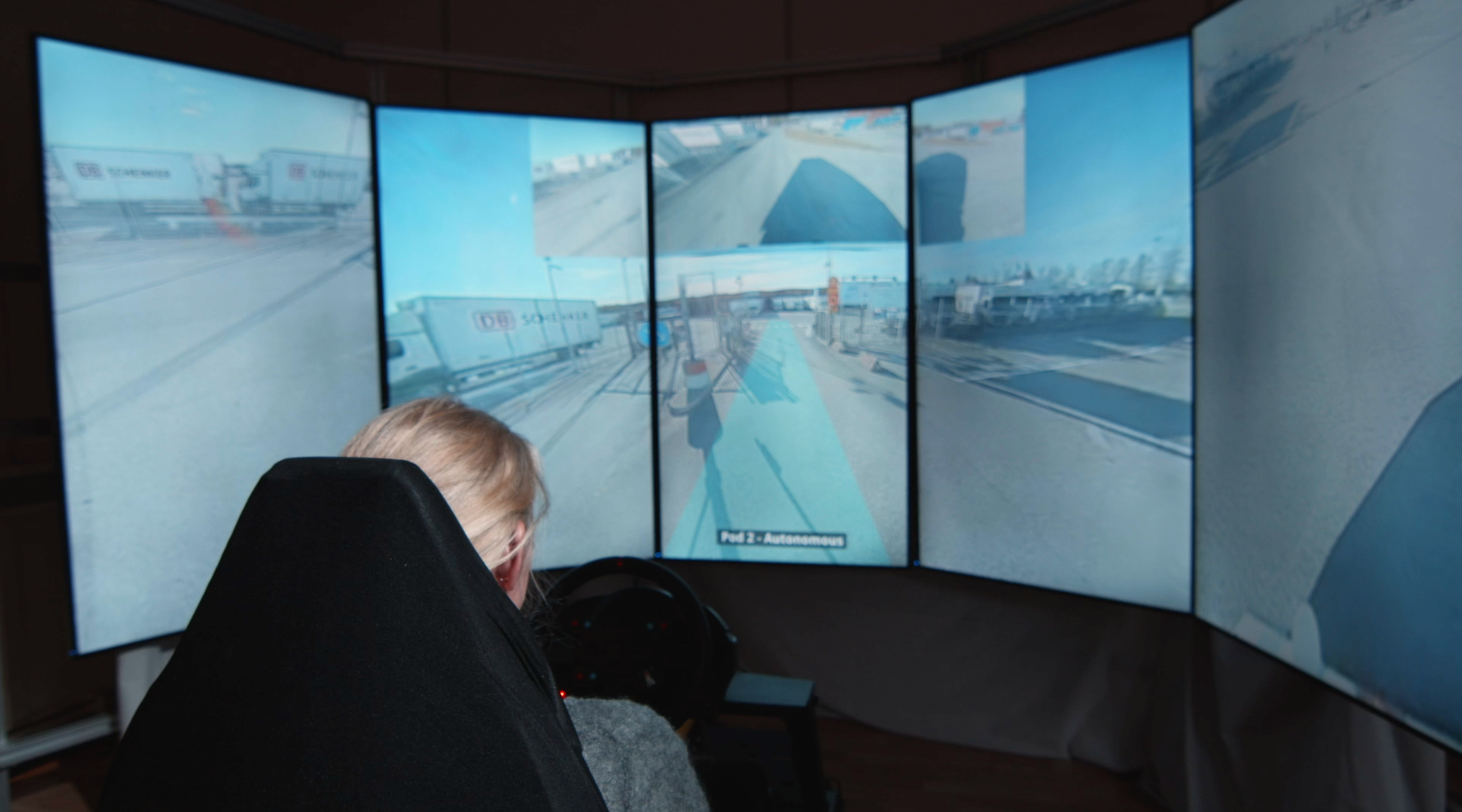Sweden’s Einride, which is building driverless electric trucks that can also be controlled remotely, will begin developing a more traditional type of truck with human drivers. This move acknowledges that the shift to autonomous transport may take longer than some had predicted and will likely be more gradual.
Stockholm-based Einride has partnered with German supermarket giant Lidl to supply trucks as part of an ongoing collaboration that will initially focus on electrification, with automation coming later. This should also go some way toward bolstering Lidl’s push to establish an emissions-free supply chain.
Founded in 2016, Einride has raised north of $30 million to develop electric trucks that have no space for a human driver. These “pods” can carry all manner of freight and have been tested on-site at customers’ facilities and on public roads in Sweden for the past year.

Above: A rendering of the T-log.
Although Einride’s existing trucks are designed to drive themselves, many scenarios may require human intervention, including the need to circumvent complex or unusual obstacles or local regulations that restrict fully autonomous vehicles to certain roads. Einride’s solution so far has been to hire teleoperators who are trained to control multiple autonomous trucks from afar.
June 5th: The AI Audit in NYC
Join us next week in NYC to engage with top executive leaders, delving into strategies for auditing AI models to ensure fairness, optimal performance, and ethical compliance across diverse organizations. Secure your attendance for this exclusive invite-only event.

Above: Einride operators will be able to control multiple autonomous trucks from a single remote drive station
But it appears this setup is not quite ready for prime time, which is partly why Einride is now working with Lidl on an interim solution that leverages elements of Einride’s business, minus the driverless pods.
All-electric
Einride said it’s now working with manufacturing partners to supply Lidl with electric trucks. While these vehicles will have human drivers inside, they will sport some of Einride’s other technology. This includes telematics hardware that serves data to Einride’s freight mobility platform to improve shippers’ efficiency by optimizing routes and schedules.
On the surface, today’s move could be symptomatic of autonomous transport’s slow route to mainstream adoption. Indeed, Einride first announced its tie-up with Lidl way back in 2017 and revealed plans to pilot a driverless delivery program in 2018. Since then, Einride has been testing its autonomous pods with Lidl and other companies, including logistics giant DB Schenker. Now Einride and Lidl are splitting this transition into different stages, the first of which will require human drivers. Einride CEO Robert Falck insists that diversification was always on the company’s roadmap and said it’s more about transforming the freight industry than building autonomous trucks per se.
“Einride has always been committed to transforming global transport holistically, not just with autonomy,” he told VentureBeat. “As such, diversification has long been part of the business plan.”
In other words, Falck is pitching this new Lidl partnership, alongside the freight platform and new electric trucks, as necessary steps on the way to a fully autonomous future.
“The realization of autonomous freight solutions on a global scale is closer than ever — the introduction of human-driven electric trucks and the Einride freight mobility platform are part of our systemic approach to revolutionizing the road freight industry, creating a clear path to a connected, emissions-free, and fully automated future with actionable steps today,” Falck added.
The initial electrification program will be focused on the Stockholm region, where Lidl will transport goods from its central warehouse to stores in the area. The first such deliveries are expected to begin this fall, with plans to expand to other stores across Sweden in the future.

